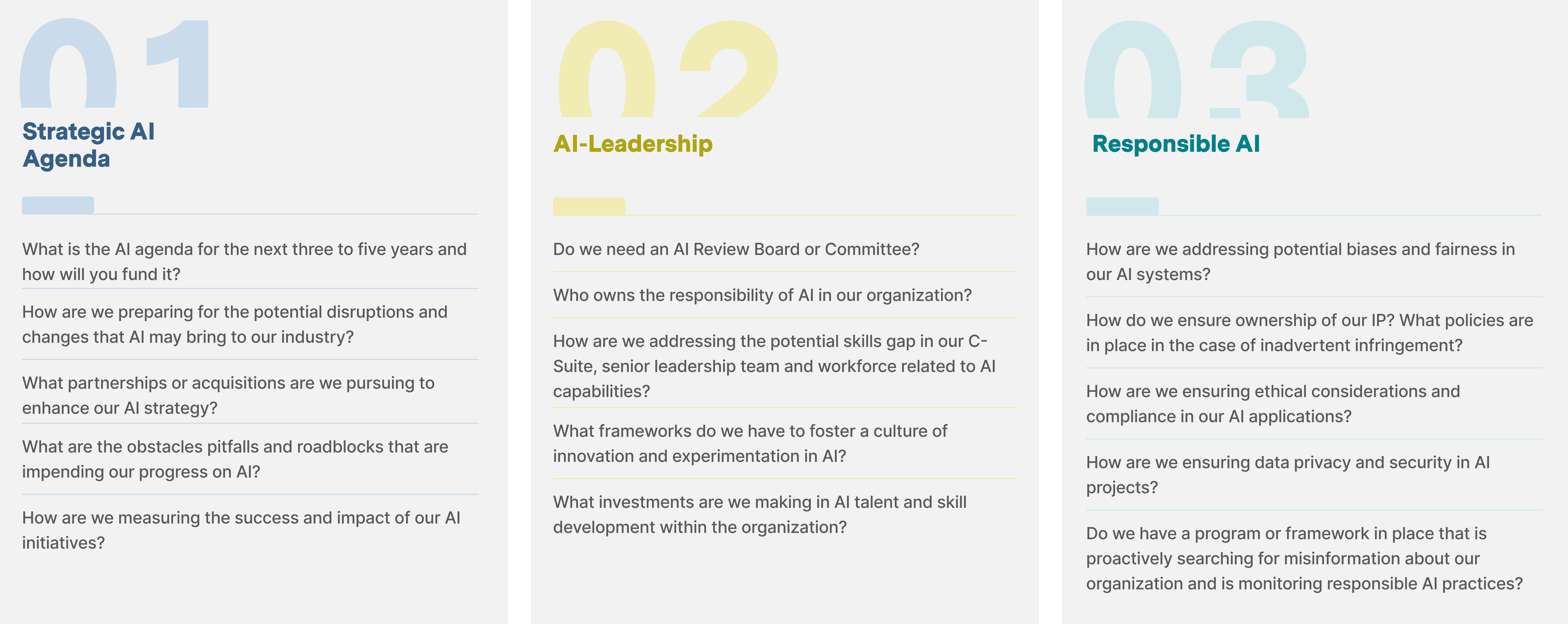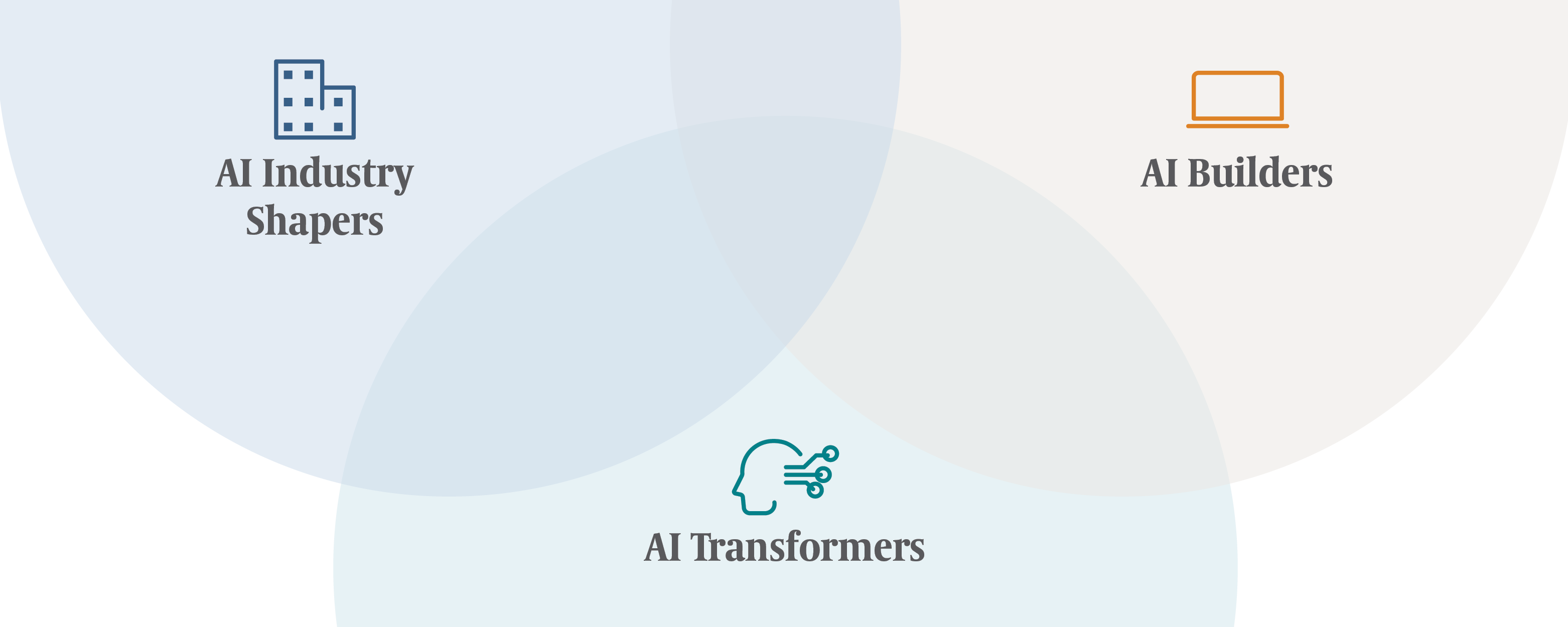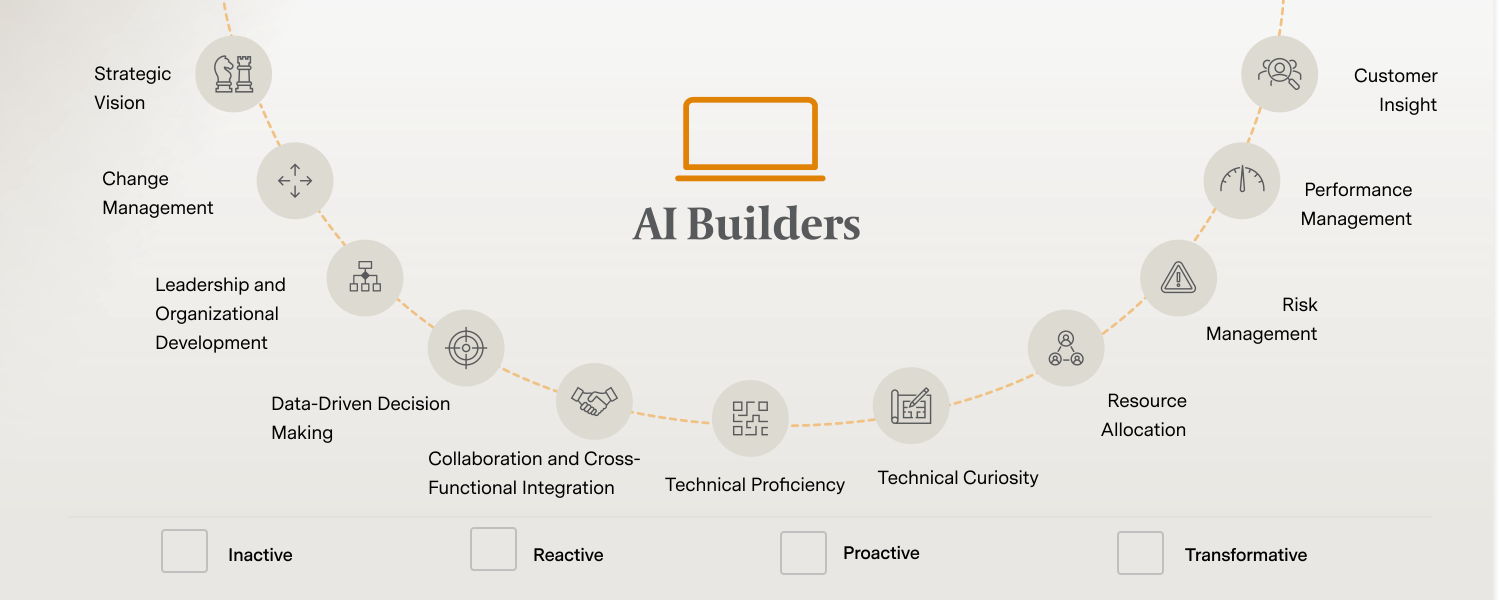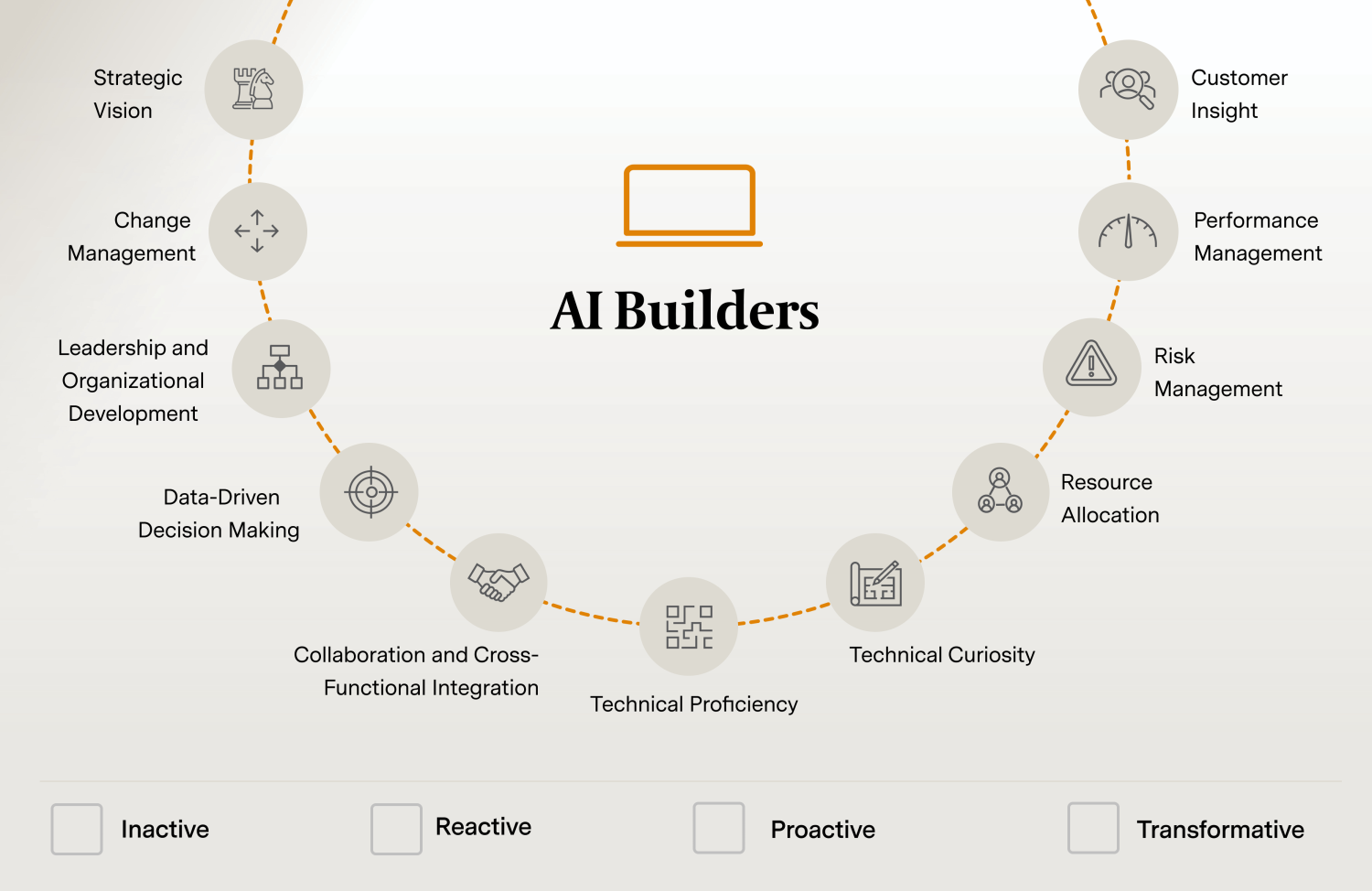Artificial Intelligence (AI) has become a priority for corporate management teams. It is essential that boards and management teams better understand the technology and its immense possibilities: The strategic use of AI will be core to the future competitiveness of companies and their ability to evolve new business models.
The Future of Jobs Report 2025, published by the World Economic Forum (WEF) shows just how high expectations for AI are in board rooms. According to the report, 40 per cent of employers are planning to use AI to automate tasks and reduce their workforce. AI will disrupt legacy businesses and bring about a new era of innovation.
Adapting Talent Strategy, Evaluating Opportunities and Managing Risks
Adapting Talent Strategy, Evaluating Opportunities and Managing Risks
These changes require a forward-looking talent strategy that must be prioritized by executive teams and supported by the Board of directors. How should this AI strategy look? At its core, is the realization: Companies that successfully implement AI will achieve significant advantages in terms of efficiency, innovation and growth. Executives and board directors must therefore ensure that their companies harness the necessary skills and competencies to remain competitive as we enter the AI era.
Risk assessment is another important aspect. Board directors must address issues of ethics, intellectual property and data security, as well as the impact on the workforce.
Board members and management should join forces to address the questions that arise and seek sustainable, successful solutions.


AI Leadership Skills for the Digital Era
AI Leadership Skills for the Digital Era
In this digital era, it is critical to develop and actively promote AI leadership skills.
Leaders with in-depth knowledge and skills in the field of AI are able to recognize the potential of this technology and use it strategically. Not only can they leverage significant efficiency gains in companies and develop innovative products and services, but they can also drive the cultural and organizational changes necessary to successfully implement AI.
The complexity of AI technologies requires leaders to have a deep understanding of innovation and technology. At the same time, they need the ability to integrate these into disruptive business strategies. Decision-makers must be able to lead interdisciplinary teams that mediate between technology and business models. This requires strong communication skills, empathy, and the ability to develop and implement a shared vision.
At Egon Zehnder, we have developed an AI model along three main leadership archetypes. We call them AI Industry Shapers, AI Builders, and AI Transformers.

AI Industry Shapers: AI Industry Shapers are visionary thinkers who are characterized by their deep knowledge of AI technology, entrepreneurship and their high-risk tolerance. This includes, for example, founders and CEOs of AI start-ups and AI companies, as well as thought leaders who strategically shape and influence the AI industry.
Their perspectives are crucial for navigating the uncertainties of new technologies. Often, these inspiring visionaries challenge traditional business models and processes. They urge leaders to rethink their mindset about the future. Several of the well-known AI Industry Shapers are also actively committed to the responsible use of AI.
AI Builders: AI Builders are driven by the endless possibilities of solving complex problems with state-of-the-art AI technology. With their deep understanding of technology, they develop new products and solutions that were previously impossible, utilizing potentially vast data resources.
A major emphasis is on the innovation of new and disruptive products and services driven by AI – often in a highly agile, learning, and fast-paced company culture
AI Transformers: AI Transformers are characterized by customer obsession, business leadership and technology savviness.
They keep their finger on the pulse of AI technology and serve as connectors, aligning technological innovations with market opportunities and transformation capabilities to drive successful AI projects in companies.
They are key drivers for implementing the AI agenda and ensure that the ongoing journey does not stall: for example, by building use cases on existing technologies that are critical for continuous AI innovation.
AI transformers can be highly effective in the role of Chief AI Officer (CAIO). In this role, they drive the strategic design, implementation and further development of the AI agenda. As visionary leaders, they combine technical expertise with soft skills such as decision-making and leadership strength, the ability to adapt quickly and the willingness to transform, coupled with strong communication skills.
Analyzing and Developing AI Skills
Analyzing and Developing AI Skills
At Egon Zehnder, we have used these findings and archetypes to further develop our proven competency model into an AI competency model. This model helps boards and executive teams to assess AI competencies in their companies and ensure they are enhanced consistently and systematically.
It combines proven leadership assessment and development systems with relevant competencies and skills that are indispensable in the world of artificial intelligence.
How can the AI competency model be used in practice? Let's take a closer look at the competencies of the AI Builder as an example.


Bottom Line: AI Expertise Is Key to Leadership Success
Bottom Line: AI Expertise Is Key to Leadership Success
In conclusion, AI represents an immense opportunity for corporate growth and efficiency. Its disruptive power will play a central role in board and management team agendas in the coming years. To take advantage of this opportunity, it is crucial to strengthen AI competence in board rooms, management teams and organizations and to jointly develop and implement an AI agenda.
Most board directors and CEOs tell us that corporate culture itself is one of the biggest obstacles to drive the AI agenda. A superficial understanding of AI technology and anxieties about the responsible use of artificial intelligence are common challenges. It is therefore important to promote a culture of learning, experimentation and entrepreneurship. At the same time, potential risks associated with AI must be closely monitored.
AI has created an evolutionary moment for companies. From this point on, it will be essential to further strengthen AI leadership skills in board rooms, management teams and the broader company.
It is essential for leaders to foster an in-depth engagement with relevant technologies to maximize their potential. This is the only way to ensure that our organizations remain capable of thriving in the future and that the opportunities presented by AI are utilized in a sustainable and responsible manner.





